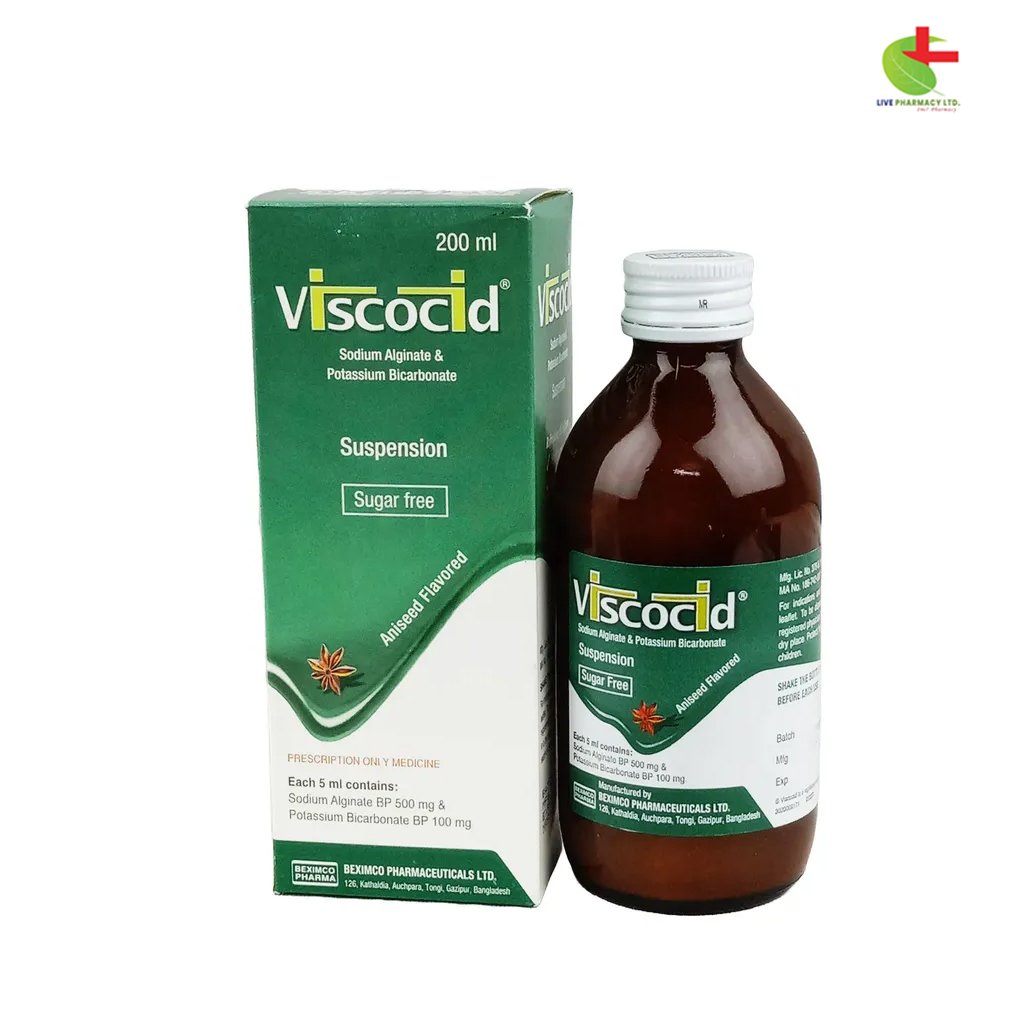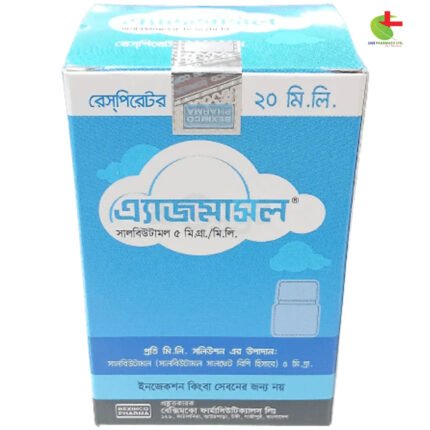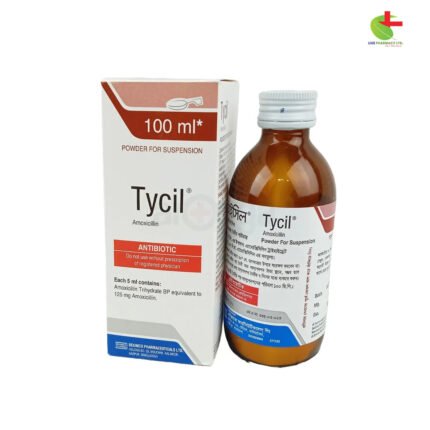Viscocid
150.00৳ Bottle (200 ml)
- Viscocid is an effective antacid formulation combining Sodium Alginate and Potassium Bicarbonate.
- Provides relief from symptoms of acid reflux, heartburn, and indigestion.
- Forms a protective gel to prevent stomach acid from flowing back into the esophagus, offering relief for up to four hours.
- Suitable for adults and children over two, safe for use during pregnancy and breastfeeding.
- Always consult a healthcare provider before use.
 Brand
Brand
|
Beximco Pharmaceuticals Ltd |
|---|---|
 Generics
Generics
|
Sodium Alginate + Potassium Bicarbonate |
 Type
Type
|
Oral Suspension |
Indications
Viscocid is designed to alleviate symptoms associated with the reflux of acid, bile, and pepsin into the esophagus. This includes issues such as acid regurgitation, heartburn, and indigestion, particularly following gastric surgery, in cases of hiatus hernia, during pregnancy, or alongside reflux esophagitis. It also addresses symptoms of laryngopharyngeal reflux, including hoarseness, voice disorders, sore throat, and cough. Viscocid may be used to manage gastroesophageal reflux symptoms during or after acid suppression therapy.
Pharmacology
Viscocid contains a synergistic blend of Sodium Alginate and Potassium Bicarbonate. Sodium Alginate, a naturally derived substance, interacts with stomach acid to form a protective gel. Potassium Bicarbonate reacts with the acid to produce carbon dioxide bubbles, which are encapsulated by the gel, creating a “raft” that floats atop the stomach contents. This raft acts as a barrier, preventing acid from flowing back into the esophagus and alleviating symptoms like heartburn. The mechanism is purely physical and does not rely on systemic absorption. The raft can provide relief for up to four hours, after which it is broken down and excreted.
Dosage & Administration
Tablets:
- Adults and children over 12 years: 1-2 tablets, 3-4 times daily after meals and before bedtime.
- Children aged 6-12 years: ½-1 tablet, 3-4 times daily after meals and before bedtime.
Suspension:
- Adults and children 12 years and older: 5-10 ml (1-2 teaspoonfuls), 3-4 times daily after meals and before bedtime.
- Children aged 2-12 years: 2.5-5 ml (½-1 teaspoonful), 3-4 times daily after meals and before bedtime.
Note: Not recommended for children under 2 years. No dosage adjustments are needed for the elderly or patients with hepatic impairment. Caution is advised for those on a restricted salt diet due to renal insufficiency.
Always consult a healthcare provider before use.
Interaction
Allow a 2-hour interval between taking Viscocid and other medications, particularly tetracyclines, fluoroquinolones, iron supplements, thyroid hormones, chloroquine, bisphosphonates, and estramustine.
Contraindications
Viscocid should not be used by individuals with known hypersensitivity to its ingredients.
Side Effects
Possible side effects include nausea, constipation, diarrhea, and headaches. Consult a physician if any adverse effects occur, especially if an excessive dose is taken, which may cause a sensation of bloating.
Pregnancy & Lactation
This formulation can be used during pregnancy when clinically necessary. There are no known adverse effects on breastfeeding infants, making it safe for nursing mothers.
Precautions & Warnings
Caution is advised when prescribing Viscocid to patients with renal impairment or congestive heart failure. Care should also be taken with patients experiencing hypercalcemia, nephrocalcinosis, or recurrent calcium-based kidney stones. Efficacy may be reduced in those with very low gastric acid levels. If symptoms persist after seven days, a reevaluation of the clinical condition is recommended.
Overdose Effects
While overdose is rare, consult a healthcare professional immediately if it occurs.
Therapeutic Class
Antacids
Storage Conditions
Store below 30°C, away from light and moisture. Keep out of reach of children.













Reviews
There are no reviews yet.